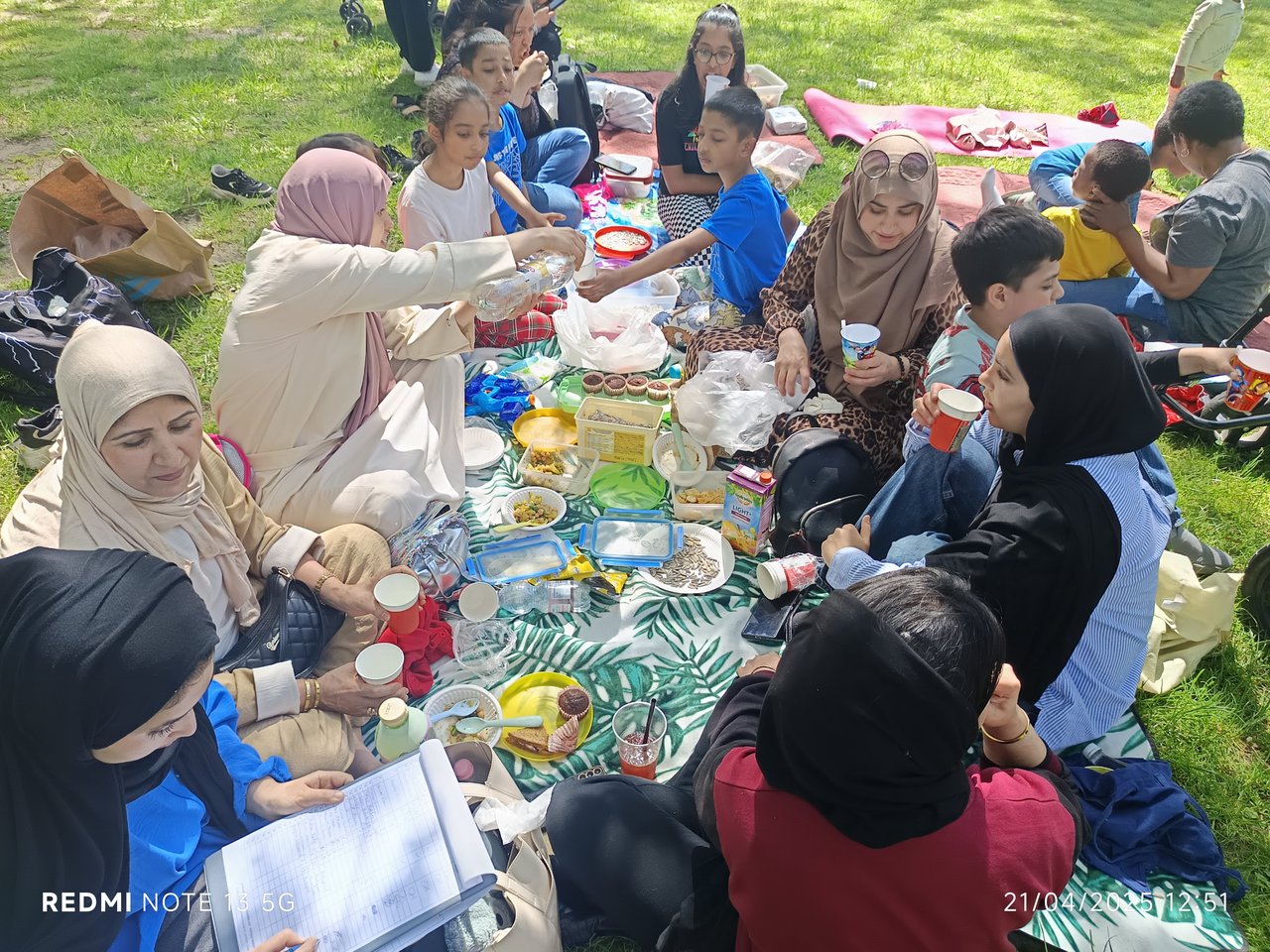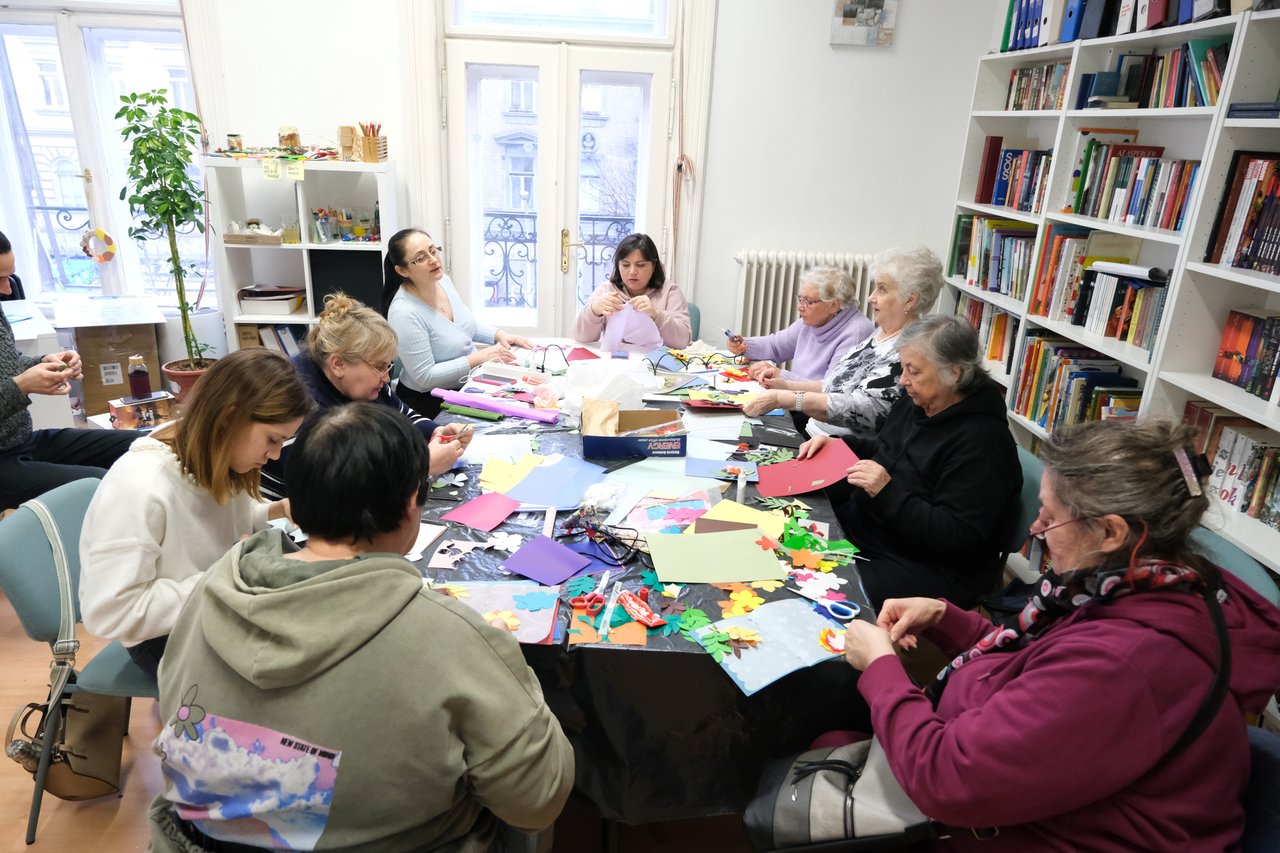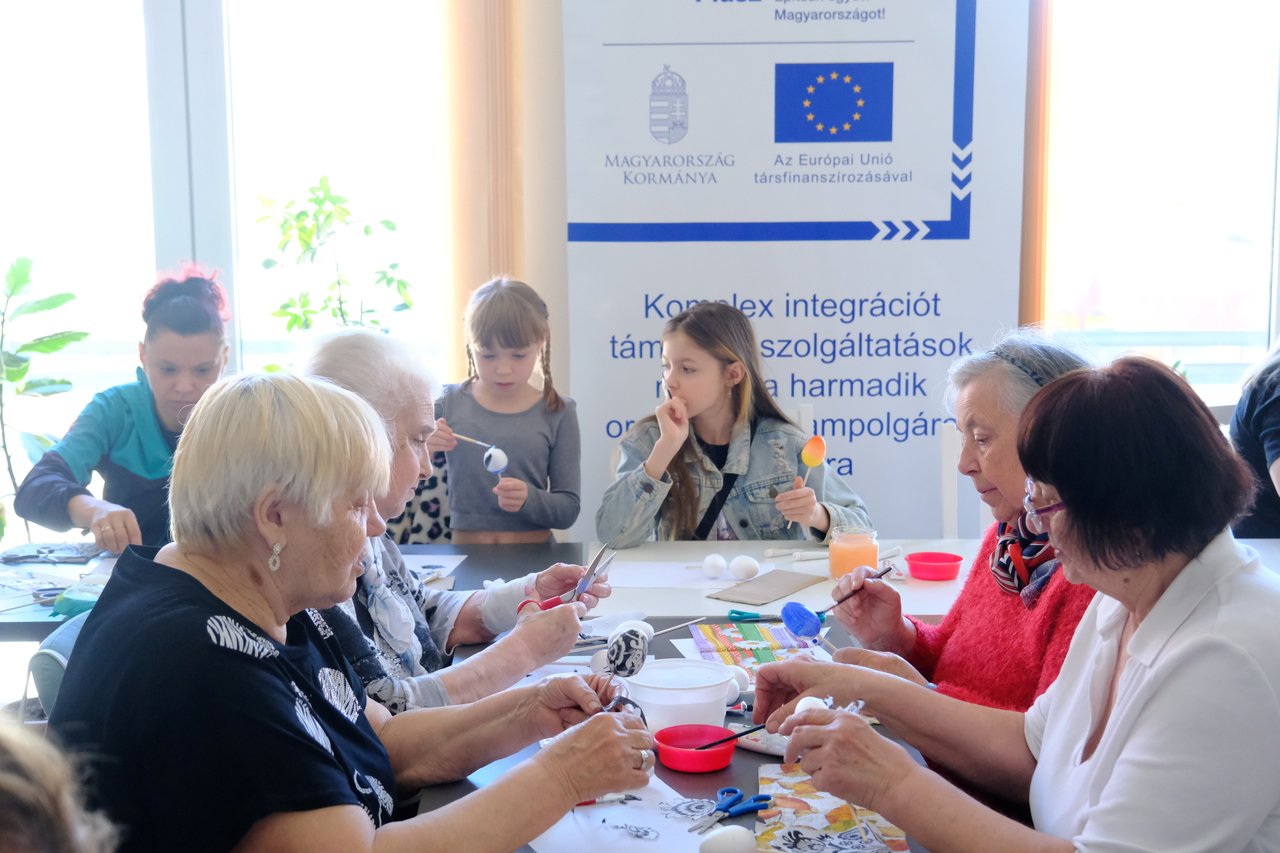In 2025, the Refugee Ministry of the Hungarian Reformed Church Aid is implementing two significant projects to address the needs of refugees, asylum seekers, and other beneficiaries of international protection residing in Hungary. 2024 marked the end of two larger projects maintained by the Refugee Ministry: the “Promotion of Life Perspectives and Inclusion of Refugees in Hungary” project, supported by HEKS Swiss Church Aid since 2017, and its Ukraine Response project, implemented in various forms since 2022 and supported by several church partners and international organisations. The 2025 projects are seeking to synthesise the best practices of previous projects and continue to offer targeted support to those in need.

Photo: HRCA
The Reformed Church in Hungary first established its Refugee Ministry in 2006 with initial activities involving the visitation of mission workers and volunteers, providing counselling and basic care to the asylum seekers at reception centres. Additionally, English lessons were offered by native English speakers serving with the church through various international church partnerships. In 2008, the Synod of the Reformed Church in Hungary adopted its “Strategy for the Mission Among Refugees,” laying the foundations for basic integration services and growth in the coming years.
In 2015, Europe experienced a significant increase in migration, making it increasingly necessary for refugee organisations to develop their capacities to respond quickly and efficiently to the needs of thousands of refugees in the country by providing much-needed support. Throughout this time, the Refugee Ministry underwent a restructuring to achieve its objectives in supporting families and also to allow better access to European Union funding through the Asylum, Migration and Integration Fund (AMIF). Although the delivery of AMIF funding was uncertain during this period, the support of implementing partners and the assistance in the form of solidarity funds and capacity-building from various international church partners were critical. In 2015, the Presidium of the General Convent of the Hungarian Reformed Church issued its “Statement of the General Convent on the European Migration Crisis” which called on European leaders “to determine immigration and refugee policies beside the aspects of solidarity and active love, based solely on these European values rather than economic expediency or fear and prejudice.” The statement would serve as a foundational guideline in the Church Cooperation with the HEKS Swiss Church Aid.
In 2016, the Refugee Ministry worked with HEKS to develop a project strategy in Hungary to address the needs of refugees and asylum seekers living in Hungary. The result of this cooperation was the first phase of the “Promotion of Life Perspectives and Inclusion of Refugees in Hungary,” which would go on to implement activities such as language and cultural classes, in-kind support, case management and community events in two phases from 2017-2020 and 2021-2023 with the critical support from HEKS and other church partners. In 2021, the Reformed Church in Hungary transferred ownership of the Refugee Ministry to the Hungarian Reformed Church Aid.
In 2022, following the Russian Federation’s invasion of Ukraine, the Hungarian Reformed Church Aid and the Refugee Ministry acted quickly to respond to the massive influx of individuals fleeing the violence. Staff and volunteers were present in great numbers at train stations, at Záhony at the border and in Budapest, delivering food packages, emergency kits, information and translation assistance, temporary shelter, and many others. As the war continued, the Refugee Ministry, with the support of numerous international church partners, developed a Ukraine Response Project which addressed the immediate and mid-term needs of those fleeing the war. Over time, it became increasingly clear that those who landed in Hungary could not return to their homes and, for various reasons, were unlikely to continue further into Europe. Therefore, the initial Ukraine Response activities, which focused heavily on immediate and emergency needs, shifted from mid-term to long-term assistance to help individuals in their integration into Hungarian society. In this period, the Refugee Ministry, like many organisations working in the refugee and asylum field, experienced unprecedented growth in capacities and activities. With a foundation of the “Promotion of Life Perspectives and Inclusion of Refugees in Hungary,” the Refugee Ministry had the benefit of a framework from which to build its capacities to address the emergency.

Photo: HRCA
In the aftermath of February 2022, organisations working in the field of refugee integration and inclusion saw an influx of international support and funding. The result of this was a critical need for capacity building and human resources. The Refugee Ministry experienced a significant expansion in its staff and programs, particularly under the Ukrainian Response program. Prior to February 2022, the Refugee Ministry was staffed with just four members. Following the development of the Ukraine Response program, the staff expanded to 35, including volunteers. Although the initial period following the invasion saw an influx of international support and funding, donor fatigue eventually set in as the conflict continued. What you see across this period of time is an initial, critical need for expansion in capacities and human resources to address the emergency situation and then a subsequent gradual decline in the funding to support these activities over time as the war continues. Thus, the sustainability of many activities is unrealistic. Furthermore, as the conflict continued, the needs of displaced Ukrainians living in Hungary shifted away from immediate, emergency needs to longer-term integration and inclusion strategies. As a result of these concurrent factors, many of the smaller activities of the Ukraine Response program became either obsolete or unsustainable due to decreasing funds or the changing needs of the individuals now living in Hungary.
Consequently, in 2024, the Refugee Ministry closed its Ukraine Response programs and applied for funding under the Asylum, Migration and Integration Fund (AMIF) of the European Union to sustain a complex integration project, which would include the comprehensive case management elements of previous projects. Additionally, much of the funding coming in to address the emergency following the invasion was divided by target group. Thus, the Refugee Ministry had to keep Ukrainian clients and other clients separate for the most part, as required by the guidelines of grants. The AMIF funding does not place such requirements on the target group of the project; therefore, the AMIF project offers more equal opportunity for refugee clients of all backgrounds.
Nevertheless, as the Refugee Ministry has witnessed in its history, funding from AMIF is sometimes unpredictable or slow to process. Herein, the support and solidarity of church partners remained critical to the service.
In 2024, the Refugee Ministry closed its projects and prepared to transition into its new AMIF project. In the interim period between the approval of the AMIF project and the delivery of funds, international church partners provided critical support to sustain the activities, particularly as a “pilot” of the AMIF project, which was designed to be implemented in 2025. The staff highlighted how the dedication of church partners to support the organisation's work in this period provided flexibility, allowing staff to adjust to new paperwork, procedures, activities, and also to establish some good practices before the formal project began in 2025.

Photo: HRCA
In 2025, the Refugee Ministry will lead two key projects that, together, represent a strategic shift from crisis response to long-term integration and inclusion. These projects draw on years of programmatic experience and the lessons learned from emergency work, aiming to address both the structural and social dimensions of refugee integration in Hungary. Despite decreasing funding and support for refugee care in Hungary, the Refugee Ministry has been able to maintain a staff of 19 including volunteers who support the targeted activities being implemented.
The AMIF project, funded through the Asylum, Migration and Integration Fund (AMIF) of the EU, is coordinated by the Hungarian Reformed Church Aid and implemented by the Refugee Ministry. It focuses on providing comprehensive integration support for third-country nationals residing in Hungary, including refugees, asylum seekers, and beneficiaries of temporary protection. The project involves professional social workers, legal experts, and community facilitators working closely with clients across Hungary, especially in Budapest and in underserved rural areas. The main objective is to support participants in navigating life in Hungary through case management, employment counselling, education inclusion, and cultural orientation. The program seeks to empower participants to become more self-sufficient and better connected to their local communities.
In this project, social workers work closely with local schools to offer support for refugee children and assess their needs. Beneficiaries are able to engage in labour market integration support, legal counselling, and assistance in adult education courses, including a European Commercial Drivers' License.
Running alongside the AMIF project, the Mentorship for Inclusion of Refugees in Society (MIC) project is a volunteer-based initiative supported by HEKS Swiss Church Aid. It is designed to promote social inclusion, intercultural understanding, and educational support through structured mentorship relationships. The project brings together high school students from local schools, adult volunteers from local churches, and refugee youth and adults. Through informal mentoring relationships and group activities, the program promotes mutual learning and friendship across cultural and generational lines. The core objective is to create a welcoming environment where refugees can develop confidence, language skills, and social connections, while local mentors gain a deeper understanding of inclusion and solidarity. The program also fosters civil engagement and awareness through events, training, and community-building activities.
Moving forward through the implementation of these projects, it is critical to identify the best practices of each. This means that emphasising the skills and knowledge of experienced staff, management, and a dedicated commitment to assessing the evolving needs of refugees in Hungary is essential. Furthermore, it is noted that long-term perspectives for the service will rely on the engagement of well-trained volunteers from both the local community and international church partnerships to support the efforts of staff members while also bolstering social inclusion activities with intercultural learning and community building.